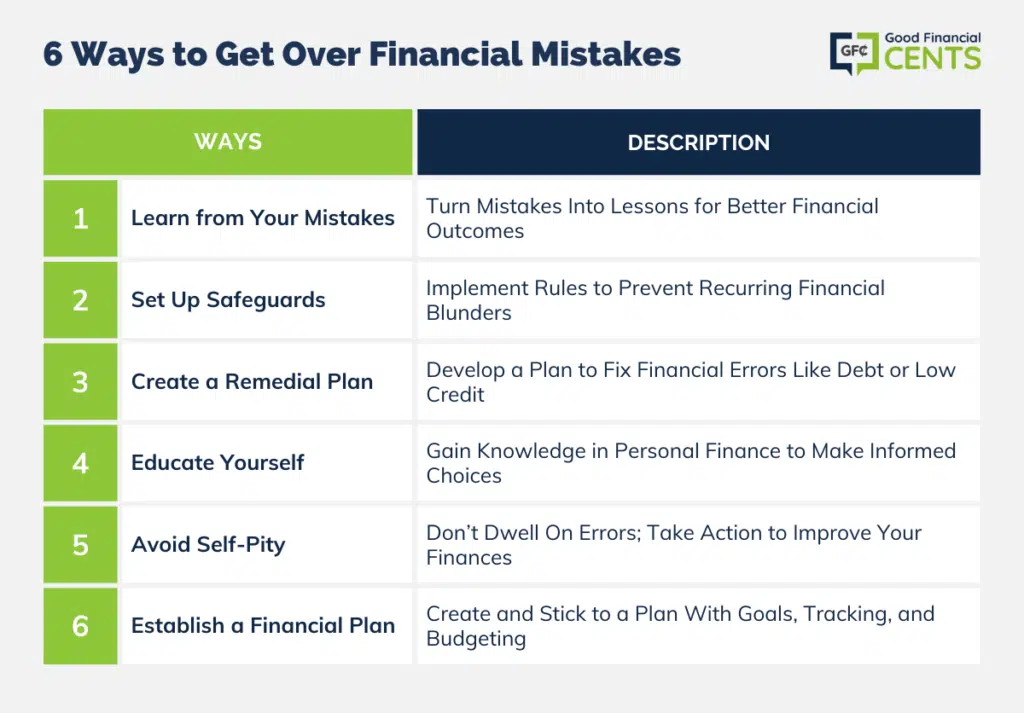This is a paid post written by me on behalf of Discover Personal Loans. All opinions are my own.
While I’m a financial advisor by trade, that doesn’t mean I’m always perfect.
The life I live with my family is a lot like anyone else’s – rewarding and amazing but also flawed and even stressful at times. And yes, I’ve made my share of financial mistakes, both big and small.
For example, this one time, I decided to dive into the world of rental real estate with my father-in-law. Basically, we tried to purchase a rental property and ran into all sorts of problems until the deal finally fell through. By that point, I was actually relieved because the process taught me I had no idea what I was doing!
Another time I fell for a Solo 401(k)-related business scam.
Yes, you read that right – a financial advisor got scammed over a 401(k)!
It all started after I bought into a bunch of hype after receiving some marketing emails from a company that wanted to help me set up a Solo 401(k) business to accompany my financial planning practice. This company promised me the world; they would set up my Solo 401(k) and help me set up a business that would help others do the same.
After talking it over with my wife, Mandy, we decided to go for it. After all, we were investing in our business. At least, that’s what I thought at the time.
Unfortunately, it was all a sham. Once I started the training, I found out there were a ton of extra (and expensive) steps to the process that would make this new business venture cost a lot more than the initial $8,000 that I planned. Second, the business was actually pretty shady. For example, the company that sold me the program wanted me to pay them $100 per lead!
Worse, I later found out the Solo 401(k) they set up for me wasn’t even set up the right way. I then had to pay another company to fix it. Long story short, I was sold a pack of lies and lost $8,000 as a result.
And yes, my wife still gives me a hard time about it!
6 Ways to Get Over Financial Mistakes
But did I let those mistakes ruin my life? Obviously not.
If I had let either one of those mistakes get me down, I probably wouldn’t be where I am today.
Over the years, I’ve learned that you really do have to get over past financial mistakes if you want to build a wealthier, more prosperous future. You live and you learn, and we all make mistakes. It’s how you recover from those mistakes that determines whether you win or lose in the long run.
If you’ve screwed up, you should know that you’re not alone. We all make poor decisions sometimes, whether we want to admit it or not. In terms of how to recover, here are six ways to get over your mistakes and end up better off in the long run:
1: Learn From Your Mistakes
Albert Einstein once said that “insanity is doing the same thing, over and over again, but expecting different results.” This quote is painfully true, especially when it comes to financial matters.
Plenty of people rack up debt, spend years paying it off, and then end up in the same position years later because they never change their ways or fix the core source of their problems. Other people never reach their savings goals because they just “wing” their finances and never use a budget. Yet, they still act confused when, year after year, they can’t get ahead.
The bottom line:
2: Set up Safeguards So Mistakes Don’t Happen Again
In addition to learning from your mistakes, you can also set up safeguards or rules that can prevent the same type of thing from happening.
Case in point:
That way, I would never fall victim to a similar “today only” sales tactic again. I also have a one-page checklist I complete named the “Impact Filter,” which helps me more clearly identify what my success criteria are on this great idea.
Whatever your financial transgressions are, look for systems you can set up that will help prevent a repeat. This will help you prevent some financial mistakes from happening in the first place.
3: Create a Plan to Remedy Your Mistakes
While some mistakes can’t really be “fixed” (i.e. getting scammed out of $8,000 for a business idea), others can be remedied. If you racked up credit card debt, quit paying your bills, and ruined your credit score, for example, there are ways to bring your score back into good graces over time.
With a wrecked credit score, your plan of attack would include paying your bills to get your accounts out of default, coming up with a plan to repay your debt over time, and using credit responsibly. If you made an impulse purchase with a credit card, you regret it; on the other hand, your plan to fix the issue might be to keep credit cards at home when you shop.
If your financial mistakes can be fixed, take steps to start fixing them right away. Not only will this help you “get over” your mistakes, but it will help you get back on solid financial footing.
#4: Educate Yourself
Another smart strategy to recover from financial mistakes is educating yourself. By learning all you can about personal finance, credit, and other money-related issues, you can discover the many ways you can succeed and which pitfalls to avoid.
If your credit is ruined, for example, taking some time to learn how to improve your credit score would be a smart way to invest your time. If you dug yourself into debt, learning about different debt payoff strategies and debt consolidation loans could be a solid move.
Remember, anything you can learn about personal finance will leave you in a stronger position to build wealth and avoid problems in the future.
5: Don’t Wallow in Self-Pity
No matter what, don’t wallow over your financial mistakes. Any problem you’ve created can be fixed, although it might take time to get there.
It’s easy to get down on yourself, to stress over your mistakes, and to feel like it’s the end of the world, but this is a waste of time! The best way to avoid self-loathing is to act. Instead of moping around, take steps to improve your situation, and you’ll start feeling better right away.
“Make Your Future Bigger Than Your Past”
6: Create a Long-Term Financial Plan – And Stick With It
If there’s one financial lesson I know for sure, it’s this: Failing to plan is the same as planning to fail.
Without a short-term and long-term financial plan in place, you’re less likely to achieve any of your financial goals. If you want to succeed, you need to plan for success, and that includes writing down your goals, creating a financial plan to get there, and sticking with that plan.
Your financial plan doesn’t have to be time-consuming or overwhelming, either. Most people would benefit immensely from a few simple acts like:
- Writing out their five-year, 10-year, and 20-year goals
- Tracking their spending for a while,
- Building an emergency fund
- Using a very loose written budget that keeps their spending under control and helps them avoid debt.
If you’re having trouble coming up with a financial plan, also keep in mind that you can hire a financial planner to help. You don’t have to do this alone if you don’t want to, and professional help is the best option for many people struggling to get started.

Bottom Line – Blunders Don’t Define You
While money blunders can be hard to endure and downright embarrassing, you don’t have to let them wreck your financial future. Instead of letting your problems get you down, channel your energy into improving your finances instead.
While money issues may seem like the end of the world when you’re going through them, anything can be overcome if you try hard enough.








I can certainly relate to your post as I too am a financial adviser (now retired) and I did $10k on a “ground floor” share deal. The ground floor suddenly became the basement instead of the penthouse and I lost my money. And yes, my wife also continues to remind me of my financial ‘expertise’ 20 years after the event.
But what a lesson I learned. Experience is a wonderful teacher and only a very slow learner makes the same mistake twice when it comes to investing money. My advice to any millennial investors out there would be to listen particularly carefully to a voice of experience. You don’t have to follow the advice but certainly, take any advice proffered on board and reflect on it when you are marking investment decisions.
Regards Adrian